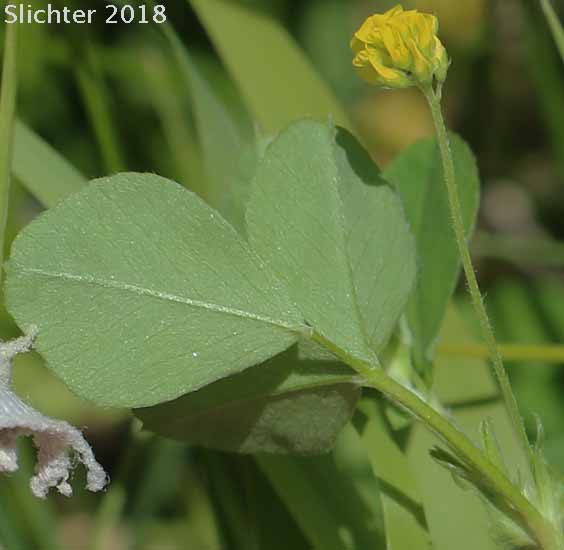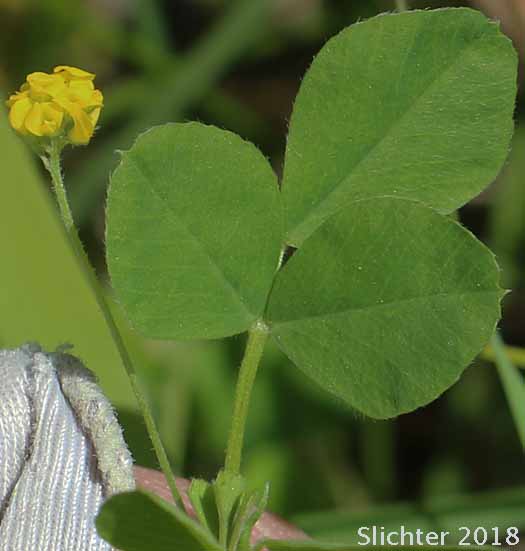 -
- 
Least hop clover is a small, weedy annual with one to several prostrate, spreading or erect stems branching from the base and attaining lengths of 10-50 cm. The leaves and stems are typically glabrous to sparsely haired. The stipules are 3-5 mm long with entire to lightly toothed margins. The leaves are alternately arranged on the stems and are ternately compound. The leaflets measure 5-20 mm long and are oblanceolate, wedge-shaped or obcordate in outline with lightly toothed margins on the distal half of the blade.
The flower heads are small compact clusters of several to 30 minute flowers lacking an involucre at the base. The heads measure 6-7 mm wide. The glabrous calyx is about half the length of the corolla and is 5-nerved with 5 narrowly lanceolate teeth, the upper pair of teeth broader and shorter than the lower trio of teeth. The yellow corolla is 3-3.5 mm long with a hood-like banner which partially hides the shorter wings and keel. The corolla does not enlarge or expand after bloom.
Least Hop Clover: Trifolium dubium - Corolla yellow, 3-3.5 mm long. The corolla does not enlarge in inflate after blooming. Flower heads with less than 30 flowers, the heads when pressed less than 8 mm wide.
Hop Clover: Trifolium procumbens - Corolla yellow, at least 4 mm long. The corolla becomes enlarged and inflated after blooming. Flower heads with more than 30 flowers, the heads when pressed mostly greater than 8 mm wide.
A weedy species, least hop clover is typically found in disturbed soils along roads, waste areas and fallow or grazed fields. It is also a common weed in lawns.
A native of Europe, least hop clover may be found across much of western North America from British Columbia south to California.